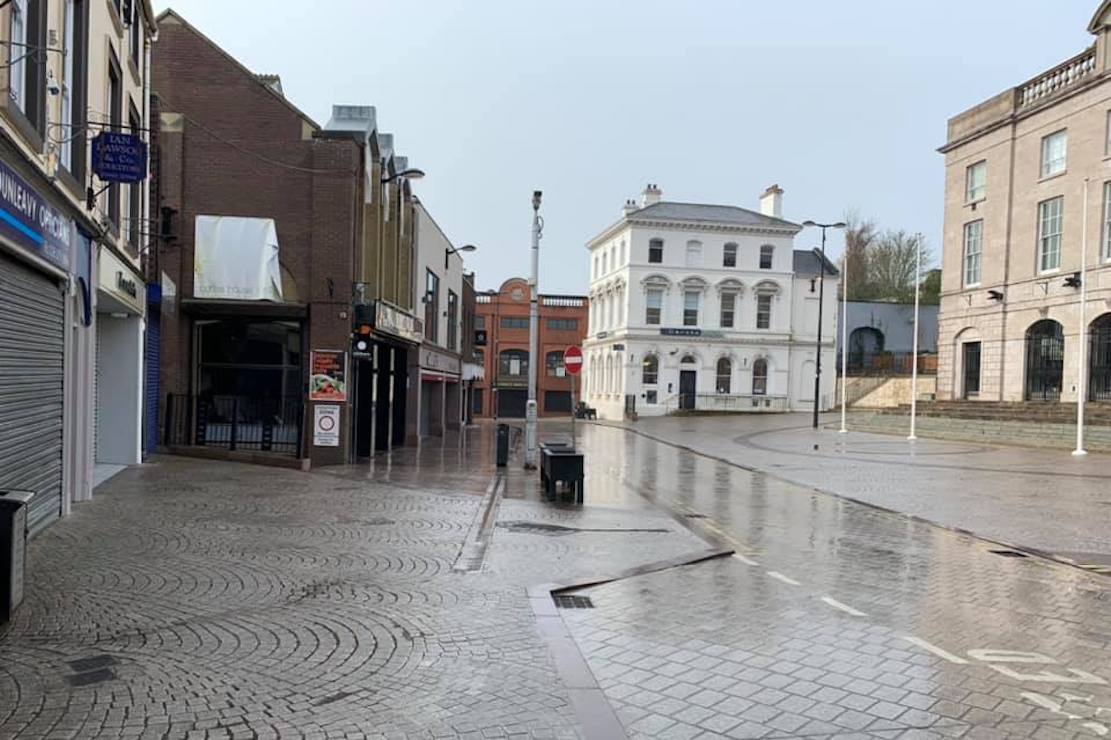
Almost 80% of businesses here plan to furlough some or all of their employees over the next seven days, as revenues plummet and cash reserves are severely hit.
The results have emerged following a survey conducted by Northern Ireland Chamber of Commerce and Industry (NI Chamber) and BDO, which gives one of the first in-depth insights into how COVID-19 is impacting business and the economy.
The survey was carried out between 1-3 April 2020 – three weeks after the World Health Organisation (WHO) declared the virus a pandemic and two weeks after the Chancellor announced a number of emergency schemes to support business.
Business performance and cash flow
There has been an immediate and significant fall in revenue for many businesses, with 3 in 4 reporting a serious decline in sales/income over a very short time frame. When compared to the week commencing 23 March 2020, 75% of businesses have seen a significant decrease in revenue from UK customers.
Cash reserves have been severely affected. One in ten businesses who responded to the survey have none and a further 63% have less than 3 months cash reserves left. Just 4% have more than 12 months cash reserves available.
Workforce and Jobs
At this point, over one third of businesses (36%) have closed operations temporarily. 58% of all respondents intend to furlough at least half of their employees, while 30% intend to furlough all of their staff through the Coronavirus Job Retention Scheme. 17% of businesses said they do not intend to furlough anyone at this point.
Quarter 1
When compared alongside the most recent Quarterly Economic Survey results for Q1 2020, also issued today (8 April) by NI Chamber and BDO, the report gives a stark insight into the scale of business interruption that Coronavirus has already caused here.
In contrast to recent weeks, during Q1 there were some signs of confidence filtering back into the economy, particularly following the restoration of the Executive. At that time, 54% of businesses said that they were trying to recruit in Q1 2020.
However, the results from Q1 also indicate that many firms across Northern Ireland were already in a poor cash flow position prior to the outbreak of the virus. This was true for respondents from both manufacturing and services and the overall trade performance remained weak in both domestic and export markets.
Brexit
Each month the Quarterly Economic Survey includes a ‘Brexit Watch’ to understand how Brexit is impacting on business and the economy. In Q1, 3 in 5 businesses said they were making preparations for Brexit, although a quarter indicated that they have not made any preparations to date.
They were most concerned about the implications of a different trading arrangement between Northern Ireland and Great Britain following the ‘Boris’ deal. In relation to how the UK exits the EU, two in five said they believe a ‘no deal’ exit from the EU is still possible.
NI Chamber & BDO survey: first insight into major economic impact of COVID-19
· 3 in 4 firms highlight a significant fall in revenue
· 1 in 10 have no cash reserves and a further 63% have less than 3 months cash reserves
· 80% intend to furlough some or all of their employees over the next week
· 30% intend to furlough all of their employees
Infrastructure
The Q1 survey also included a focus on infrastructure. Some 40% of respondents felt that the condition of Northern Ireland’s infrastructure is poor, with 42% saying it was ‘ok’. When it comes to investment impact, 43% of respondents stated that the condition of local infrastructure has a negative impact on business investment plans. Businesses believe planning and funding are key issues negatively impacting on infrastructure investment in the region.
Commenting on the findings, Ann McGregor, Chief Executive, Northern Ireland Chamber of Commerce and Industry, said: “The COVID-19 pandemic is a public health crisis that has huge consequences for everyone in society, and the health and wellbeing of our people is our primary concern.
“As a business representative body this survey has highlighted that there is also a startling negative impact on business and the economy which is significant for our future when we emerge from the crisis.
“The main issue is cash flow and it is alarming to see that one in ten businesses who responded to the survey have no reserves set aside and a further 63% have less than 3 months cash reserves left. For manufacturers, ‘Just in Time’ processes mean cash flow can be tight in normal times.
“This cash flow issue is being exasperated by slow or non-payments and difficulty accessing the various funds. Even where there is some activity on order books, businesses are finding that customers are becoming increasingly reluctant to pay quickly, worsening the cash flow problem. Firms may be able to avail of rates relief and furlough staff but they can’t survive without income and in this challenging time are anxious about increasing their debt. They also cannot afford to wait weeks or months for reimbursement from the various support schemes to arrive.
“Banks have a range of products available and have collectively pledged their support to business in this crisis – this is welcome as businesses require this support urgently. Unfortunately, many are struggling with the preparation of cash flows and other requirements and it is important that they liaise with business advisors such as BDO to consider a “5 Point Plan” as a guide in the preparation of their funding requests. Consideration of a grant based resilience fund would also be welcome to aid recovery.”
Brian Murphy, Managing Partner, BDO, said: “The Business community has had to react in a rapid and dramatic way to the truly dreadful circumstances caused by COVID-19. It has created a severely challenging and unpredictable environment which has forced difficult decisions to be made. Few sectors have been unaffected by COVID-19; with the hospitality, manufacturing and services sectors in particular, feeling a huge impact on their operations, employees and supply chains.
“As our business community has demonstrated in the past, it is resilient and where possible, businesses have restructured their operations and working environments to protect their employees and their trading. We at BDO and many of our clients have also responded through home working, the use of technology to continue communications with colleagues and customers and in some cases, by altering product and service offerings.
“However, it is no surprise that there has been a significant fall in revenue in a very short space of time, something which many companies simply could not have planned for. This drop has been made even more difficult by the fact that many companies do not have cash reserves to see them through.
“There have already been businesses who have taken the difficult decision to close their doors, with 36% closing temporarily. It is vital that these and indeed all businesses and their employees are supported in the short, medium and long terms to ensure our local economy is sustained.
“We have seen a range of vital Government interventions announced over the last 2 weeks, which will provide a degree of security to businesses and their employees. There is however, much work still to be done for those businesses who fall outside eligibility criteria for these schemes.
“In order to survive it is critical that businesses assess the immediate consequences of COVID-19 on their operations and take independent and objective advice to develop a plan to get through the coming months. Open and transparent communication with your bank and all stakeholders is key and by working together in partnership, we at BDO have already seen that solutions can be found. To support businesses in this regard, we have developed a “5 Point Plan” in conjunction with the main banks, this plan is focused on securing funding and planning for what happens next. This can be found at the BDO Northern Ireland Covid-19 Hub.”





